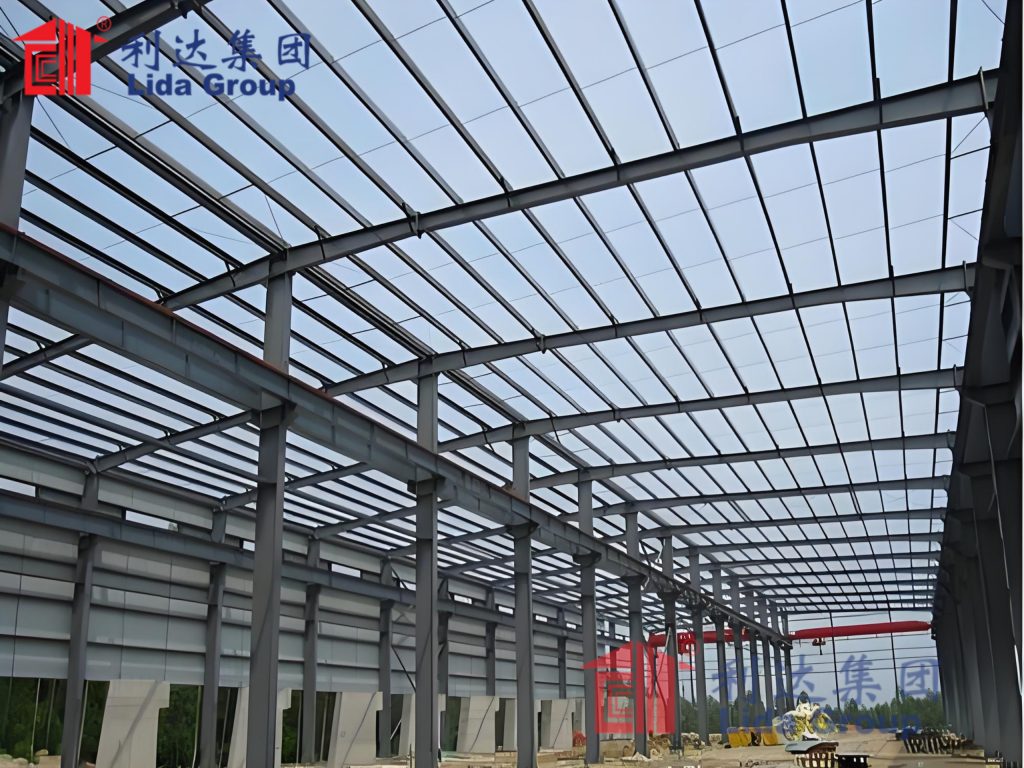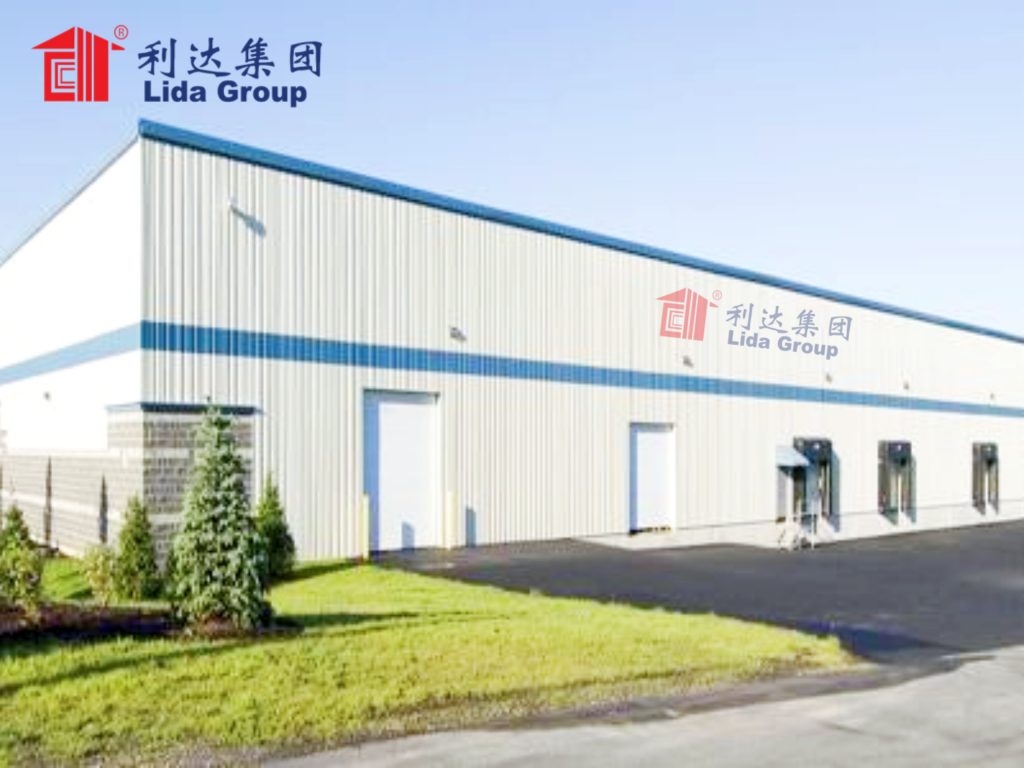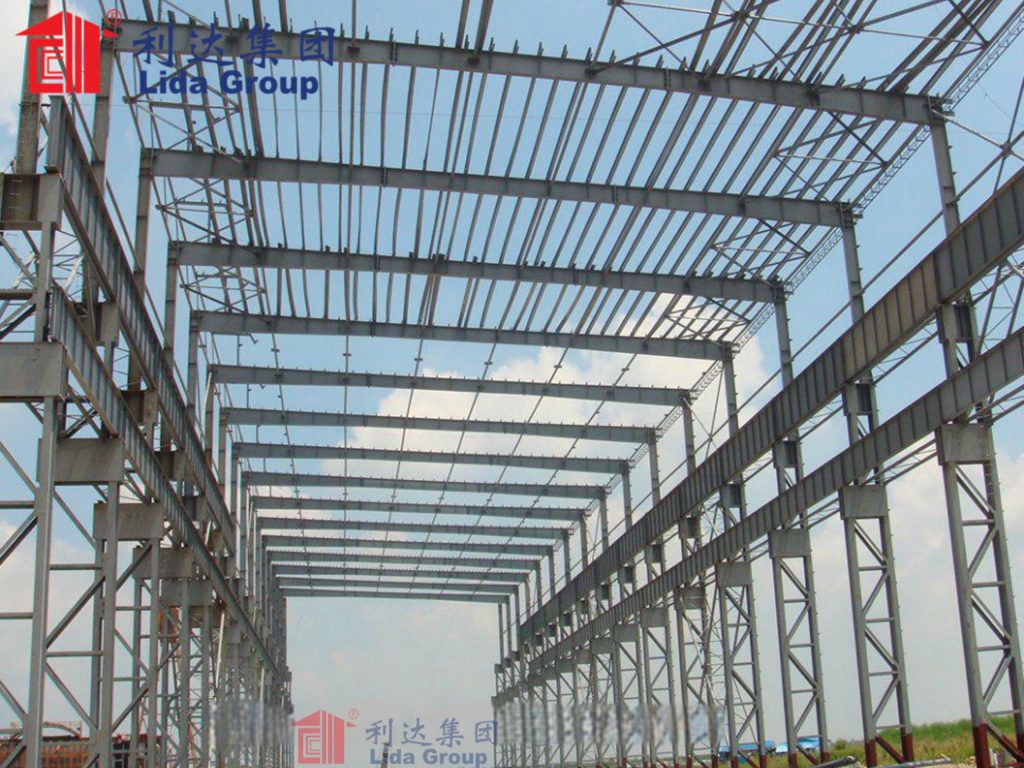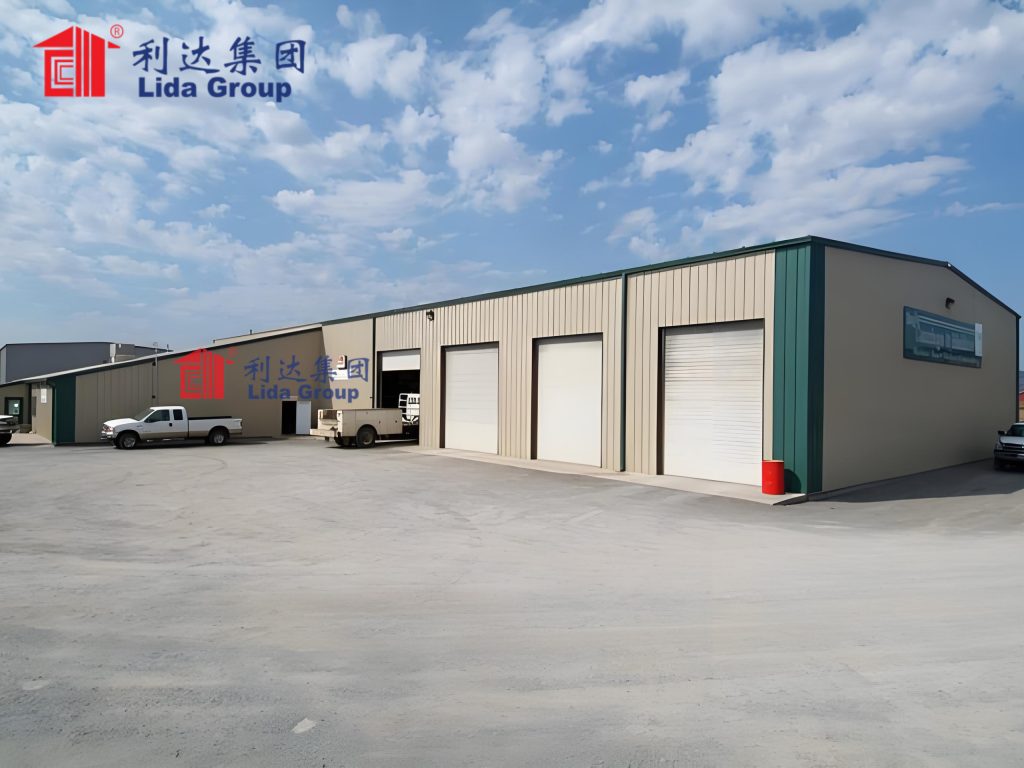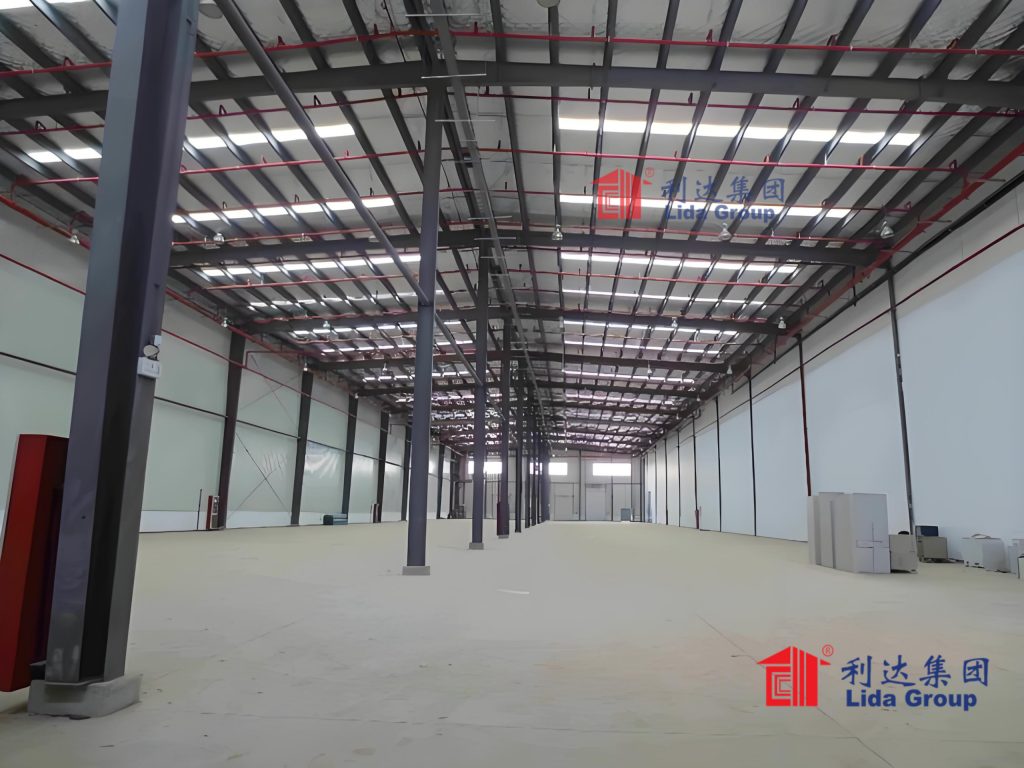The Background and Importance of High-Quality Steel Farm Houses
In the ever-evolving landscape of agriculture, the demand for durable and efficient farm structures has never been more critical. Traditional wooden barns and sheds, while steeped in nostalgic charm, often fall short in providing the robustness and longevity required by modern agricultural practices. Enter high-quality steel farm houses, a revolutionary solution that addresses these shortcomings head-on. These structures are designed to withstand harsh weather conditions, resist pests and decay, and offer unparalleled durability compared to their wooden counterparts.
The importance of high-quality steel farm houses cannot be overstated. They provide farmers with a reliable infrastructure that can support various operations, from livestock management to crop storage. Moreover, they play a crucial role in ensuring food safety by protecting crops and animals from environmental hazards such as floods, fires, and extreme temperatures. This reliability translates into significant economic benefits, allowing farms to operate smoothly without frequent disruptions caused by structural failures or maintenance needs.
One key advantage of steel farm houses is their resistance to natural elements. Unlike wood, which can rot, warp, or be damaged by termites, steel remains impervious to many of these threats. This resilience ensures that farm buildings remain functional and safe for years, reducing long-term costs associated with repairs and replacements. Additionally, the inherent strength of steel allows these structures to bear heavier loads, making them ideal for housing heavy machinery or large quantities of produce.
Furthermore, the sustainability aspect of steel construction should not be overlooked. Steel is one of the most recycled materials on earth, with a recycling rate exceeding 80%. By opting for steel farm houses, agricultural sectors contribute positively to environmental conservation efforts, minimizing waste and promoting resource efficiency. This aligns well with the growing emphasis on sustainable farming practices aimed at reducing the industry’s ecological footprint.
In summary, high-quality steel farm houses represent a significant advancement in agricultural infrastructure. Their ability to endure challenging environments, coupled with their economic and environmental benefits, makes them an indispensable asset for contemporary farming operations. As the agricultural sector continues to evolve, the adoption of advanced steel structures will undoubtedly play a pivotal role in shaping its future.
Advanced Steel Structure Construction: Features and Benefits
Advanced steel structure construction brings numerous advantages to the agricultural sector, particularly when it comes to building high-quality steel farm houses. One of the standout features is the superior durability offered by steel structures. Unlike traditional wooden constructions, steel is highly resistant to moisture, pests, and extreme weather conditions. This means that farmhouses built using steel require minimal maintenance over their lifespan, significantly reducing operational costs for farmers. Additionally, the structural integrity of steel allows these buildings to support heavier loads, making them ideal for housing large equipment or storing substantial amounts of crops and feed.
Another significant benefit of steel structures is their rapid assembly process. Pre-fabricated steel components are manufactured off-site under controlled conditions, ensuring precision and quality. Upon delivery, these components can be quickly assembled on the farm, drastically cutting down construction time. This efficiency is especially valuable in agricultural settings where delays can lead to lost productivity. Furthermore, the modular nature of steel construction enables easy expansion or modification of existing structures, providing flexibility to adapt to changing needs without major disruptions.
From an economic standpoint, steel farmhouses offer considerable cost savings. Although the initial investment may be higher than traditional wooden buildings, the long-term financial benefits are substantial. Reduced maintenance costs, lower insurance premiums due to enhanced safety features, and extended lifespan all contribute to overall savings. Additionally, the resale value of properties equipped with steel structures tends to be higher, providing an excellent return on investment.
Environmentally, steel construction is a sustainable choice. Steel is one of the most recycled materials globally, with a high rate of recyclability that minimizes waste and conserves resources. By choosing steel, farmers reduce their carbon footprint and promote eco-friendly practices. Moreover, the energy efficiency of steel structures can be further enhanced through insulation techniques, leading to reduced heating and cooling costs and contributing to a greener operation.
In conclusion, the advanced features of steel structure construction—superior durability, rapid assembly, economic efficiency, and environmental sustainability—make it an ideal choice for modern agricultural needs. These attributes not only improve operational efficiency but also ensure long-term viability, positioning steel farmhouses as a cornerstone of progressive farming practices.
Why Lida Group Stands Out in Steel Farm House Construction
Lida Group stands out in the realm of steel farm house construction due to its commitment to innovation, quality, and customer satisfaction. At the heart of this success lies the company’s relentless pursuit of technological advancements. By integrating state-of-the-art technologies into every phase of production, Lida Group ensures that each steel farmhouse is constructed with precision and durability in mind. Advanced computer-aided design (CAD) software allows for meticulous planning and customization, enabling clients to tailor their structures to specific requirements. Additionally, the use of automated manufacturing processes enhances accuracy and consistency, resulting in high-quality products that meet rigorous standards.
Quality assurance is another cornerstone of Lida Group’s excellence. The company adheres to stringent quality control measures throughout the entire production cycle, from raw material selection to final inspection. Each component undergoes rigorous testing to ensure it meets the highest industry benchmarks. This dedication to quality extends beyond just the physical product; Lida Group also prioritizes the training and certification of its workforce, ensuring that every member of the team is equipped with the skills and knowledge necessary to deliver exceptional results.
Customer service plays a pivotal role in setting Lida Group apart from competitors. Understanding the unique challenges faced by the agricultural sector, the company offers comprehensive support services tailored to meet the diverse needs of its clients. From initial consultations to post-construction follow-ups, Lida Group provides personalized attention to ensure that each project runs smoothly and efficiently. This includes offering detailed guidance on site preparation, installation, and ongoing maintenance, thereby fostering long-term relationships built on trust and reliability.
Moreover, Lida Group’s commitment to innovation does not stop at technology and quality. The company continuously invests in research and development to stay ahead of industry trends and anticipate future demands. This forward-thinking approach allows Lida Group to introduce new solutions and improvements that enhance the functionality and performance of its steel farmhouses. For instance, recent innovations include integrated smart systems that monitor environmental conditions within the structures, optimizing energy use and enhancing the welfare of livestock and crops.
In summary, Lida Group distinguishes itself through a combination of cutting-edge technology, unwavering quality assurance, and exceptional customer service. These core strengths enable the company to consistently deliver high-quality steel farmhouses that meet and exceed client expectations, solidifying its reputation as a leader in the agricultural construction sector.
Case Studies of Successful Projects Using Lida Group’s Steel Farm Houses
Several case studies exemplify the successful implementation of Lida Group’s steel farm houses across various agricultural settings, showcasing their versatility and effectiveness. In one notable example, a dairy farm located in a region prone to severe weather events adopted Lida Group’s steel structures to replace aging wooden barns. The new steel farmhouses provided a robust shelter for livestock, effectively shielding them from extreme cold and heavy snowfall. The farmers reported a significant reduction in animal stress and improved health outcomes, directly translating into higher milk yields and better overall farm productivity.
Another compelling case involves a large-scale vegetable grower who sought to expand their operation by adding several storage facilities. By opting for Lida Group’s steel farmhouses, the grower benefited from quick assembly times and flexible configurations that allowed seamless integration with existing infrastructure. The sturdy construction ensured optimal conditions for crop preservation, reducing spoilage rates and extending shelf life. This improvement in storage capabilities enabled the farm to scale its operations efficiently, meeting increased market demand without compromising on quality.
A third example highlights a poultry farm that implemented Lida Group’s steel structures to house thousands of chickens. The farm experienced recurrent issues with pest infestations and structural damage in their previous wooden coops. After transitioning to steel farmhouses, the farm saw a dramatic decrease in pest-related problems and a marked increase in the longevity of the structures. The improved hygiene conditions contributed to healthier flocks, leading to higher egg production and lower mortality rates. Additionally, the ease of cleaning and maintaining the steel structures facilitated compliance with stringent biosecurity protocols, safeguarding the farm against potential disease outbreaks.
These real-world applications underscore the practical benefits of Lida Group’s steel farm houses. Whether addressing the challenges of livestock management, crop storage, or biosecurity, these structures consistently deliver reliable performance and tangible economic gains. Farmers appreciate the peace of mind that comes with knowing their investments are protected by resilient and adaptable infrastructure.
Moreover, the positive feedback from these projects demonstrates how Lida Group’s solutions have transformed day-to-day operations for agricultural enterprises. Clients report increased efficiency, reduced downtime, and improved working conditions, all of which contribute to the overall success and sustainability of their farms. Such testimonials reinforce the notion that Lida Group’s steel farmhouses are not merely structural assets but integral components of modern, thriving agricultural ecosystems.
Economic Benefits of Choosing Lida Group’s Steel Farm Houses
Choosing Lida Group’s steel farm houses offers a multitude of economic benefits that can significantly enhance the profitability and sustainability of agricultural operations. One of the primary advantages is the long-term cost-effectiveness of these structures. While the upfront investment may be higher compared to traditional wooden buildings, the reduced maintenance costs and longer lifespan of steel farmhouses make them a financially prudent choice. Steel is inherently resistant to many of the wear and tear issues that plague wooden structures, such as rot, insect infestation, and warping. Consequently, farmers can expect fewer repair expenses and less frequent replacements, translating into substantial savings over the years.
Additionally, the rapid assembly process of prefabricated steel components contributes to significant labor and time savings. With traditional construction methods, projects often face delays due to weather conditions, material shortages, or unforeseen complications. In contrast, steel farmhouses can be erected swiftly, allowing agricultural operations to resume normal activities sooner. This efficiency reduces downtime and maximizes productivity, ultimately boosting revenue generation.
Insurance considerations also favor steel structures. Insurance companies typically offer lower premiums for steel buildings due to their superior fire resistance and overall durability. This translates into ongoing cost reductions for farmers, freeing up capital that can be redirected towards other essential aspects of their operations. Moreover, the enhanced safety features of steel farmhouses can mitigate risks associated with accidents or structural failures, providing peace of mind and financial protection.
Resale value is another critical factor to consider. Properties equipped with steel farmhouses tend to retain their value better than those with conventional wooden structures. When it comes time to sell or transfer ownership, having high-quality, durable buildings in place can significantly increase the property’s appeal and market value. This added value serves as a long-term investment that pays dividends even beyond the immediate operational benefits.
In terms of return on investment (ROI), the cumulative advantages of reduced maintenance, lower insurance premiums, expedited construction, and increased resale value create a compelling financial proposition. Farmers who opt for Lida Group’s steel farmhouses can achieve a higher ROI by leveraging these cost-saving benefits. Over time, the savings accumulate, offsetting the initial expenditure and generating additional funds that can be reinvested in the farm to drive further growth and innovation.
Overall, the economic benefits of selecting Lida Group’s steel farm houses extend far beyond the initial purchase price. By focusing on long-term cost savings, improved operational efficiency, and enhanced property value, these structures provide a solid foundation for sustainable and profitable agricultural endeavors. As the agricultural sector continues to evolve, embracing advanced steel construction solutions will undoubtedly prove to be a wise financial decision for farmers seeking to optimize their operations and secure their future.
Environmental Sustainability of Steel Farm Houses
Steel farm houses not only offer economic and operational benefits but also contribute significantly to environmental sustainability. One of the foremost advantages of steel construction is its recyclability. Steel is one of the most recycled materials worldwide, with a recycling rate that exceeds 80%. This high level of reusability means that steel farmhouses can be dismantled and repurposed at the end of their lifecycle, minimizing waste and conserving natural resources. By choosing steel structures, farmers help reduce the demand for virgin materials and lower the overall carbon footprint of their operations.
Energy efficiency is another key aspect of steel farmhouses. Modern steel structures can be designed with advanced insulation systems that enhance thermal performance, thereby reducing the need for artificial heating and cooling. This leads to substantial energy savings and lowers greenhouse gas emissions associated with energy consumption. Additionally, the use of solar panels and other renewable energy sources can be easily integrated into steel farmhouses, further promoting sustainable practices and reducing reliance on fossil fuels.
Water conservation is also facilitated by steel farmhouses. Traditional wooden buildings often require chemical treatments to protect against rot and pests, which can leach harmful substances into the soil and water supply. Steel, being naturally resistant to these issues, eliminates the need for such treatments, preserving the integrity of the surrounding environment. Moreover, the impermeable nature of steel prevents water infiltration, protecting stored crops and livestock from moisture damage and reducing the risk of mold and mildew formation.
Furthermore, the modular design of steel farmhouses supports sustainable land use. These structures can be customized to fit specific plot sizes and layouts, maximizing space utilization and minimizing the impact on surrounding landscapes. This adaptability is particularly beneficial for farms operating in sensitive ecosystems, where minimizing disruption is crucial for preserving biodiversity and maintaining ecological balance.
Lastly, the extended lifespan of steel farmhouses contributes to environmental sustainability. By providing durable, long-lasting structures, farmers reduce the frequency of demolition and reconstruction activities, which are resource-intensive and generate significant waste. The longevity of steel buildings ensures that fewer materials are consumed over time, supporting a circular economy model where resources are used efficiently and responsibly.
In summary, steel farmhouses offer multiple environmental benefits, including high recyclability, energy efficiency, water conservation, sustainable land use, and extended lifespan. By adopting these advanced structures, the agricultural sector can take meaningful steps towards achieving greater sustainability, reducing its ecological footprint, and contributing to global efforts in environmental conservation.
Summary and Future Prospects
In conclusion, the adoption of high-quality steel farm houses from Lida Group represents a transformative shift in modern agricultural practices. These structures stand out for their superior durability, rapid assembly, economic efficiency, and environmental sustainability. The advanced features of steel construction, such as resistance to natural elements and pests, combined with the innovative technologies employed by Lida Group, ensure that these farmhouses meet and exceed the demanding requirements of contemporary farming operations. The economic benefits are manifold, ranging from reduced maintenance costs and lower insurance premiums to enhanced resale values and improved operational efficiency. Environmentally, steel farmhouses contribute to sustainability through their recyclability, energy efficiency, and minimal ecological impact.
Looking ahead, the future prospects for steel farm houses appear promising. As the agricultural sector continues to embrace technological advancements and sustainable practices, the demand for robust and eco-friendly infrastructure will likely increase. Innovations in smart systems and renewable energy integration are expected to further enhance the functionality and performance of these structures, making them even more indispensable to modern farming. Additionally, ongoing research and development by Lida Group promise to bring new enhancements and customizations that address emerging challenges and opportunities within the industry. Ultimately, the continued evolution of steel farmhouses will play a pivotal role in shaping a more resilient, efficient, and sustainable agricultural future.
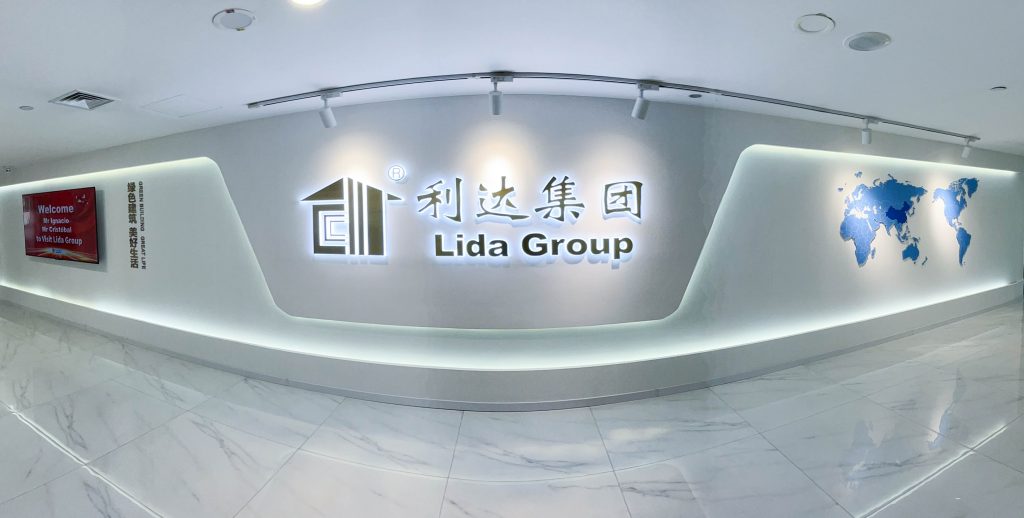
Related news
-
Hurricane-Resistant Innovation: Lida Group's Steel Frame Building Systems Redefine Safety Standards for Coastal Warehouses
2025-07-29 13:16:10
-
Sustainable Steel Revolution: Lida Group Cuts Carbon Footprint 30% in High-Quality Warehouse Construction via Recycled Steel Frames
2025-07-25 17:55:51
-
Vertical Farming Expansion Fueled by Lida Group's Multi-Level Steel Farm Houses with Precision Steel Structure Engineering
2025-07-25 16:55:19
contact us
- Tel: +86-532-88966982
- Whatsapp: +86-13793209022
- E-mail: sales@lidajituan.com


